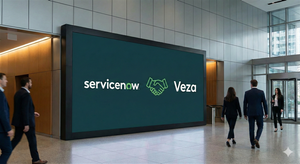
The U.S. stock market closed on a high note today, October 29, 2025, with the S&P 500 Technology Sector spearheading a powerful rally that propelled the Nasdaq Composite to unprecedented all-time highs. This remarkable performance was largely fueled by an exceptional post-earnings surge from tech giant Alphabet (NASDAQ: GOOGL) and the unyielding momentum of the ongoing 'AI Gold Rush.' The market's robust display signals a continued 'risk-on' environment, driven by strong corporate earnings and an accommodative monetary policy, yet also raises questions about market breadth and potential overvaluation.
Detailed Market Surge and Alphabet's Triumph
Today's trading session was nothing short of historic, with all three major U.S. indices—the Dow Jones Industrial Average (INDEXDJX: .DJI), S&P 500 (INDEXSP: .INX), and Nasdaq Composite (NASDAQ: .IXIC)—not only reaching but repeatedly surpassing new all-time highs for the fourth consecutive session. The S&P 500 closed up between 0.2% and 0.3%, marking its 36th record close of the year. The technology-heavy Nasdaq Composite surged by an impressive 0.5% to 0.6%, reaching approximately 23,958.47, also setting its 36th record close for 2025. The Nasdaq 100 (NASDAQ: NDX) similarly climbed to new all-time highs, advancing by +0.47%. This widespread ascent was further bolstered by the Federal Reserve's decision today to cut interest rates by 25 basis points, the second such reduction this year, providing an additional tailwind for equities.
The primary catalyst for this exuberance was Alphabet (NASDAQ: GOOGL), which delivered stellar third-quarter 2025 earnings after the closing bell. The company reported an impressive earnings per share (EPS) of $2.87, significantly outperforming the analyst consensus of $2.27, a remarkable +26.99% surprise. Revenue reached a historic high of $102.3 billion, marking a 16% year-over-year increase and comfortably topping the consensus estimate of $100.1 billion. Net income for the quarter jumped by a remarkable 33%. A key highlight was the 34% increase in Google Cloud revenues, primarily driven by robust growth in AI Infrastructure and Generative AI Solutions. Following this strong announcement, Alphabet's stock surged by approximately 6% in after-hours trading, underscoring strong investor confidence. The company's shares have already added over 40% to their value in 2025, solidifying its position as one of the best-performing 'Magnificent Seven' stocks this year.
The broader 'AI Gold Rush' continues to be the undisputed primary driver behind the current global stock market rally, fostering unprecedented investor interest and substantial capital inflows. Companies are rapidly monetizing AI capabilities, particularly through expansive cloud services, with the global AI market projected to reach approximately $391 billion in 2025. This insatiable demand for AI-driven solutions is fueling significant investment across the entire AI ecosystem. Beyond Alphabet, other tech players also saw substantial gains. Nvidia (NASDAQ: NVDA) was a leading force, surging by 3% to 3.9% today, and becoming the first company on Wall Street to achieve a staggering $5 trillion market capitalization. Seagate Technology (NASDAQ: STX) skyrocketed by 18.7% after better-than-expected fiscal first-quarter results. Teradyne (NASDAQ: TER) soared 19.4% after reporting stronger-than-expected profits, attributing its strength to artificial intelligence applications. Cognizant Technology Solutions (NASDAQ: CTSH) was up more than 6% after reporting strong Q3 revenue and raising its full-year forecast.
The Winners and Losers in the AI-Driven Market
The 'AI Gold Rush' is creating a clear delineation between the companies poised for significant gains and those that may struggle to adapt. At the forefront of the winners are the foundational AI providers and infrastructure companies. Chipmakers like Nvidia (NASDAQ: NVDA) continue to dominate, providing the essential hardware for AI development and deployment. Their advanced GPUs are indispensable, securing their position as a primary beneficiary. Similarly, cloud service providers such as Alphabet's Google Cloud (NASDAQ: GOOGL), Microsoft's Azure (NASDAQ: MSFT), and Amazon Web Services (NASDAQ: AMZN) are experiencing booming revenues as businesses increasingly rely on their platforms for AI model training, hosting, and deployment. These companies are not just offering infrastructure but are also developing proprietary AI models and services, creating a powerful ecosystem.
Software companies that are successfully integrating AI into their existing product suites or developing new AI-native applications are also thriving. Companies like Adobe (NASDAQ: ADBE), with its generative AI features in creative tools, and Salesforce (NYSE: CRM), enhancing its CRM platforms with AI, are seeing increased demand and customer stickiness. Furthermore, specialized AI software developers, particularly those focusing on niche applications like natural language processing, computer vision, or autonomous systems, are attracting substantial investment and partnerships. Their ability to deliver tangible business value through AI solutions is driving their growth and market capitalization.
Conversely, companies that are slow to adopt or integrate AI into their operations face significant risks. Traditional software providers that fail to innovate may find their offerings becoming obsolete. Businesses with high operational costs and inefficient processes, particularly in sectors where AI can automate tasks, are vulnerable to disruption. While the market is currently experiencing broad gains, the long-term outlook suggests that companies heavily reliant on outdated business models or those unable to leverage AI for efficiency and innovation will likely lag behind. The intense competition for AI talent and resources also presents a challenge for smaller firms without the financial muscle to attract top-tier AI engineers and researchers.
Broader Significance and Industry Transformation
The current tech sector rally, fueled by AI and robust earnings, signifies a profound shift in the global economy, marking a new phase of digital transformation. This isn't merely an incremental improvement but a fundamental re-architecture of industries, akin to the internet's early days. The widespread adoption of generative AI is enabling unprecedented levels of automation, personalization, and data analysis, impacting everything from healthcare and finance to manufacturing and entertainment. This event underscores the accelerating pace at which AI is moving from experimental research to practical, revenue-generating applications, making it a critical competitive differentiator for businesses worldwide.
The ripple effects of this AI-driven surge are extensive. Competitors in every sector are now compelled to accelerate their AI strategies, leading to increased R&D spending, strategic acquisitions, and partnerships aimed at bolstering their AI capabilities. For instance, companies that previously might have hesitated to invest heavily in cloud infrastructure are now rushing to adopt it to leverage AI services. This creates a virtuous cycle of investment and innovation across the tech ecosystem. Furthermore, the demand for specialized hardware and software components for AI is creating new markets and opportunities for suppliers, while also intensifying competition among existing players. The concentration of AI power among a few tech giants, however, raises concerns about market dominance and potential monopolistic practices.
Regulatory bodies globally are increasingly scrutinizing the ethical implications, data privacy concerns, and potential societal impacts of advanced AI. Discussions around AI governance, responsible AI development, and the need for new legal frameworks are gaining momentum. This could lead to new regulations impacting data usage, algorithm transparency, and the deployment of AI in sensitive areas, potentially shaping the future landscape for tech companies. Historically, this period draws parallels to the dot-com boom of the late 1990s, where revolutionary technology drove unprecedented market enthusiasm. However, unlike the dot-com era, today's AI advancements are underpinned by tangible revenue generation and demonstrable productivity gains, suggesting a more sustainable, albeit still speculative, growth trajectory.
The Road Ahead: Navigating the AI Frontier
In the short term, the market is likely to remain buoyant, driven by continued strong earnings reports from tech leaders and the sustained enthusiasm for AI. Investors will be closely watching upcoming earnings calls from other 'Magnificent Seven' companies like Microsoft (NASDAQ: MSFT) and Meta Platforms (NASDAQ: META) for further insights into the health of the tech sector and the pace of AI monetization. The Federal Reserve's dovish stance, indicated by recent rate cuts, will also continue to provide a favorable macroeconomic backdrop for equity markets. However, the narrow breadth of the rally, with gains heavily concentrated in a few mega-cap tech stocks, remains a concern, raising questions about the sustainability of broader market growth without wider participation.
Looking further ahead, the long-term possibilities for AI are transformative. We can expect to see continued innovation in generative AI, leading to more sophisticated applications in content creation, drug discovery, and personalized services. Companies will need to make strategic pivots, focusing not just on developing AI but on integrating it seamlessly into their core business processes to drive efficiency and create new revenue streams. This will require significant investment in retraining workforces and overhauling legacy systems. Market opportunities will emerge in specialized AI services, ethical AI consulting, and robust cybersecurity solutions to protect AI models and data.
Potential scenarios range from a continued, steady ascent driven by genuine productivity gains from AI, to a more volatile environment if regulatory pressures increase or if the promised AI benefits fail to materialize at the expected pace. A 'soft landing' for the economy, combined with sustained AI innovation, could lead to a prolonged period of tech-led growth. Conversely, any significant geopolitical tensions or unexpected technological setbacks could temper investor enthusiasm. Investors should closely monitor key metrics such as AI adoption rates, enterprise spending on AI solutions, and the regulatory landscape for any shifts that could impact the trajectory of this 'AI Gold Rush.'
Wrap-Up: A New Era of Tech Dominance
Today's closing bell report underscores a pivotal moment for the financial markets, with the S&P 500 Technology Sector, propelled by Alphabet's stellar earnings and the relentless 'AI Gold Rush,' demonstrating unparalleled strength. The key takeaway is clear: artificial intelligence is not merely a buzzword but a powerful, revenue-generating force that is fundamentally reshaping industries and driving significant market value. The strong performance of companies like Alphabet (NASDAQ: GOOGL), Nvidia (NASDAQ: NVDA), and others highlights the immediate and tangible benefits of investing in AI infrastructure and applications.
Moving forward, the market is poised for continued innovation and growth within the tech sector, albeit with an undercurrent of caution regarding market concentration and potential overvaluation. The Federal Reserve's accommodative policy provides a supportive environment, but investors must remain vigilant to signs of overheating or shifts in the regulatory landscape. The lasting impact of this period will likely be the accelerated integration of AI into every facet of business and daily life, leading to unprecedented productivity gains and the creation of entirely new economic sectors.
Investors should watch for sustained growth in AI-related revenues across a broader range of companies, the evolution of regulatory frameworks for AI, and any changes in consumer and enterprise adoption patterns. The ability of companies to effectively scale their AI initiatives and demonstrate clear returns on investment will be crucial. While the 'AI Gold Rush' presents immense opportunities, a discerning approach, focusing on companies with strong fundamentals and a clear AI strategy, will be paramount in navigating this exciting, yet potentially volatile, new era of tech dominance.
This content is intended for informational purposes only and is not financial advice







